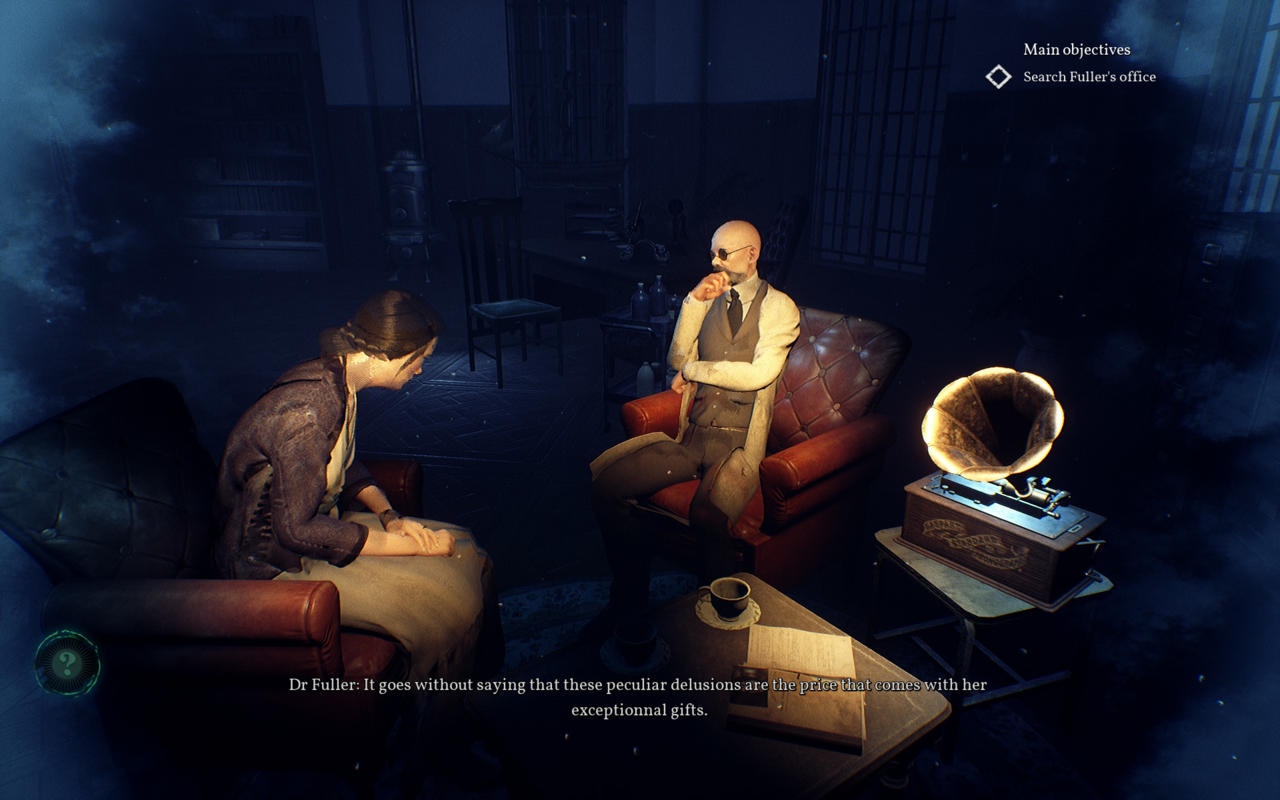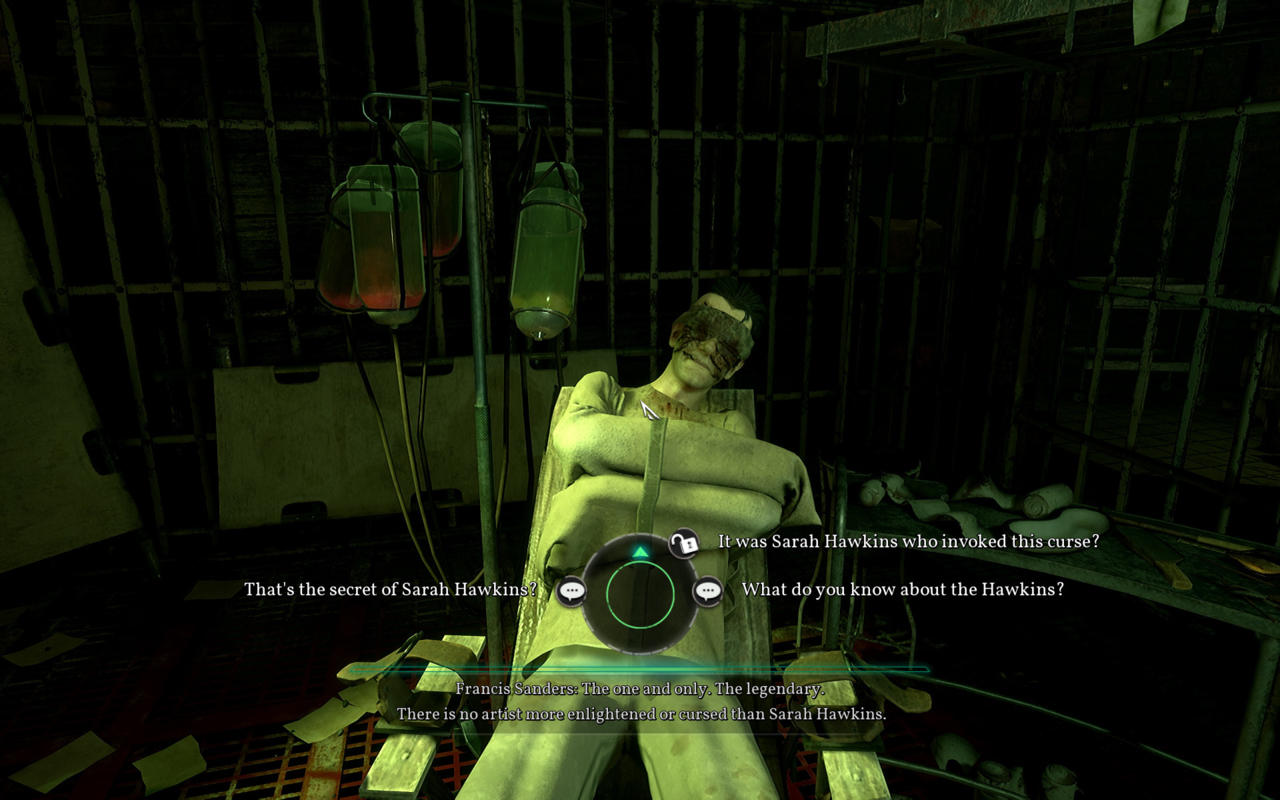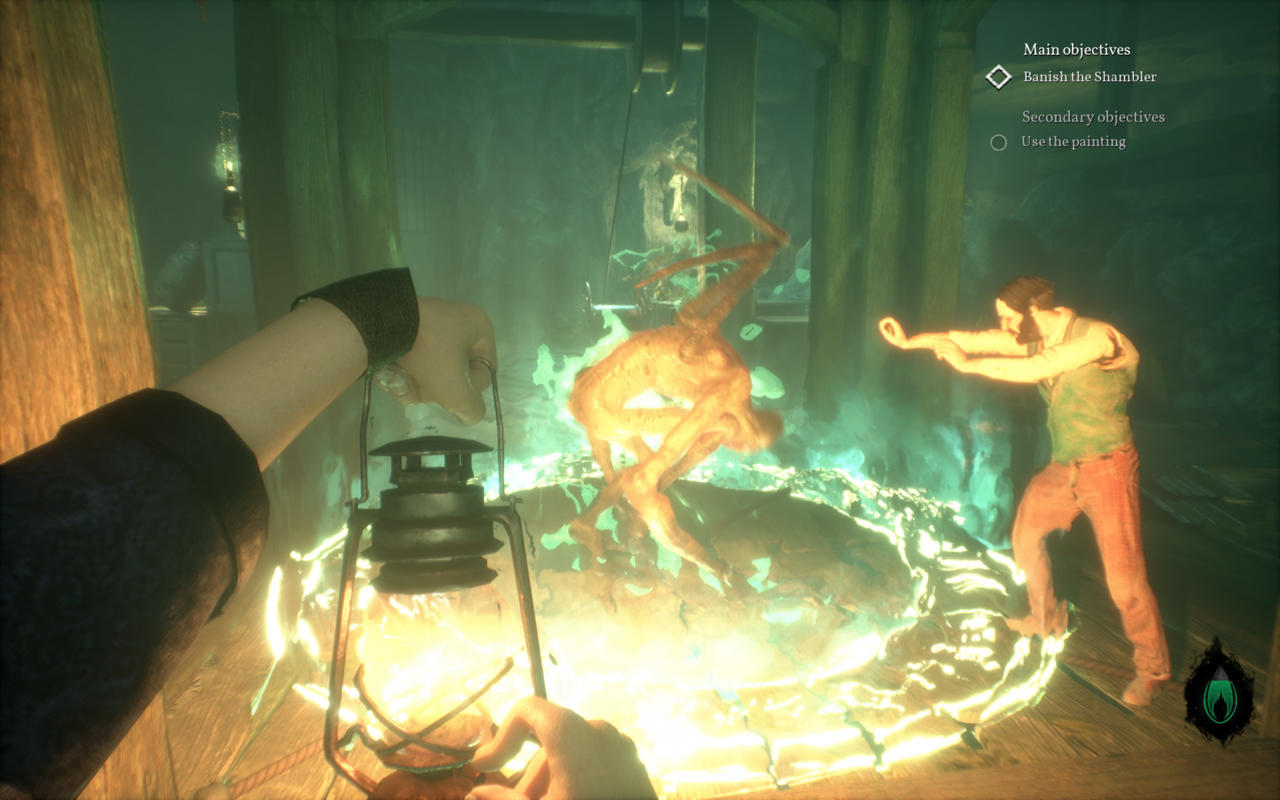Even if you haven't read any of H.P. Lovecraft's literary works, you likely possess a passing understanding of why he is broadly recognized as one of the most significant horror writers of the 20th century. His ideas of unspeakable, unknowable terrors driving men (and it is almost always men) to madness, and his creation of the Cthulhu mythos with its pantheon of ancient gods utterly indifferent to the lives of men, have influenced countless novels, films, pen-and-paper and video games in the years since. This latest effort, from French studio Cyanide, spins a familiar tale of artistic obsession, unnatural experimentation and the frailties of the human mind into a mostly successful--if not exactly revelatory--exploration of Lovecraft's core thematic concerns. But its achievements in narrative and mood-setting are regularly undermined by some lackluster sleuthing, run-of-the-mill adventure game puzzles and a handful of truly terrible pseudo-action sequences.
Edward Pierce is a private investigator in Boston who seems to specialize in underwhelming his employer, the Wentworth Detective Agency, and self-medicating the trauma he suffered during World War I with alcohol and sleeping pills. Still shaken after waking from yet another nightmare, he agrees to look into the death of Sarah Hawkins, her husband, and their son three months prior in a house fire on the tiny island and former whaling port of Darkwater. Sarah's father seeks out Pierce after taking posthumous receipt of one of his daughter's paintings, a rather heavy-handed depiction of a woman cowering before some kind of demon. Pierce, summoning all his investigative acumen, suggests Sarah was trying to send a message via her art.
The rhythm of Pierce's detective work, and thus the bulk of the game, is established as soon as he disembarks at the fog-drenched and permanently midnight Darkwater docks. You can explore, in first-person, a small location, talk to the various locals and examine certain items of interest. Conversations are presented with a dialogue wheel offering multiple topics, some of which are only unlocked if Pierce has learned relevant information while occasionally others are delivered as binary choices--pick one and you can't go back to pursue other spokes on the wheel. The voice performances here is entirely serviceable, and not nearly as hammy as one might fear given the setting, though the writing itself suffers from some jarring tonal shifts as you navigate the branches of dialogue and countless unfortunate typos in the subtitles.
Taking cues from the Cthulhu pen-and-paper RPG, you can earn and assign points to a collection of stats that, in theory, let you tailor Pierce's detective expertise towards Investigation, Psychology, Eloquence and so on. These stats affect both the dialogue options--a high level in Eloquence might enable Pierce to choose a more persuasive line of questioning--and the ways you can interact with the environment, i.e. Pierce can draw upon his knowledge of Medicine to reveal something about a corpse. Yet these moments rarely, if at all, feel significant; they mostly seem like minor excursions en route to the same outcome.

In general, the RPG nature of the game feels undernourished. The idea of these stats is, I assume, to let you know you're applying specific techniques of investigation; in some instances, it succeeds, most notably in the few occasions when Pierce is able to solve puzzles in multiple ways. But much of the time the differences between having leveled up your Strength stat instead of your Investigation stat feel ambiguous at best and trivial at worst.
It's ambiguous at best because you get the feeling that's what the game is aiming for in order to drive central narrative themes. When you make certain choices or perform certain actions the message, "This will affect your destiny," pops up in the top left corner in a manner similar to a Telltale adventure game. What's never clear, however, is how your destiny has been affected. There's no end of chapter screen that recaps the crucial choices you made and little sense, by the game's conclusion, of how those decisions lead to the choice Pierce has to confront in the very final scene. On my first playthrough I was faced with two possible endings, while on my second, after making a bunch of different choices throughout, I had unlocked a further two without any real understanding of how I'd been given the chance to alter Pierce's destiny.

Call of Cthulhu, and Lovecraft himself, revels in the inexplicable, the ineffable, the fallibility of human perception and its limited capacity to understand the world. Over the course of the game, Pierce finds himself grappling to make sense of what he's seen--or what he thinks he's seen. As his grip on reality, already tenuous to begin with, further loosens, it becomes difficult, if not impossible, to reason out cause and effect. On a narrative level, this serves the story well, maintaining suspense and hitting you with well-timed twists. But on a more mechanical level, as you select each choice with a shrug of ignorance, it feels weirdly distancing and ultimately unsatisfying.
Much of Pierce's detective work is routine. You scour each location for hotspots with which to interact, pocketing clues and the odd useful object. Progress is typically a case of diligence--find enough hotspots and Pierce will work out what to do next. Sometimes, however, he's able to "reconstruct" past events that occurred at the present location, but while these tend to be interesting in terms of plot revelations they, again, only require you to find the relevant hotspots and click on them. There's a kind of grim pleasure to be had here, I suppose, a measure of compulsive enjoyment gleaned from tracking down every last hotspot that some players will find gratifying. It's rote work, though.
When Call of Cthulhu breaks out of its procedural setup, it reveals itself at its best and at its very worst. The high point sees Pierce trapped in a hospital you've previously visited--and thus, crucially, should be familiar with. He has to traverse a shadow version of the hospital, navigating its pitch black corridors using only the fading light of a lantern to unlock a route through the normal version. By drawing upon the knowledge you've accumulated previously, it works fantastically as a tense and unsettling puzzle.
In contrast, the low points arrive when you're forced into the game's handful of action sequences. In one, you're hiding from a monster that will kill you instantly if it gets too close. You eventually realize you have to find a particular item--one, it should be said, out of a dozen near-identical items scattered throughout the adjacent rooms--and use it in a particular spot. The only clue you're given is a comment Pierce makes when he picks up the correct item, noting that this one "seems different somehow." I'm not ashamed to admit that, in the heat of the moment, I failed to pick up on this dialogue change as I was a little bit distracted by the howling monster pursuing me across the room. During this trial-and-error cycle of death and reload I must have attempted this sequence 30-odd times before I eventually worked out what to do and was able to systematically try each item until I found the correct one.

In another, Pierce is equipped with a handgun for the only time in the game and has to make his way across an area populated with slow, shuffling enemies. On my first playthrough, I died while experimenting with what happens when you get caught and, when the game reloaded, found myself without a gun. The only way I could proceed was by running around the area, luring enemies into chasing me around until eventually, a gap opened between them that was wide enough for me to dart through. It turned what was probably meant to be a dramatic, seat-of-the-pants dash for safety into a comical farce. (On my second playthrough I simply shot everyone, thanks to my gun not disappearing, and it proved rather more mundane than dramatic, but at least it wasn't frustrating.)
Dwelling on these few low points may seem overly harsh--they account for no more than a small portion of the whole game, after all. But they are not merely poor moments in an otherwise solid game; they're awful pieces of game design utterly inconsistent with the rest of the game. Much of Call of Cthulhu is a perfectly competent adventure game built on firm, if uninspired, point-and-click traditions. And while it won't dazzle you with ambitious, creative puzzle-solving, its central story is as haunting and consuming as you want a good Lovecraft tale to be. But then, like some nightmare creature, an action sequence comes out of nowhere and ruins the experience.









